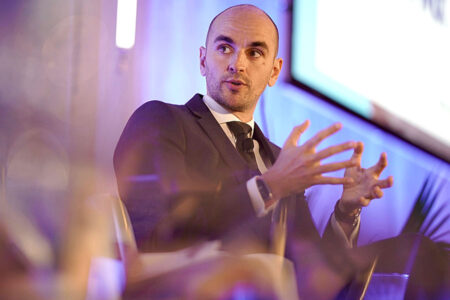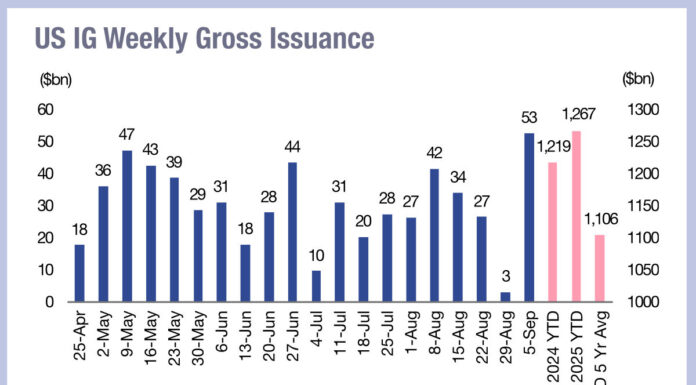
While outlooks are often gloomy, speakers at this year’s Fixed Income Leaders Summit were optimistic about the future of the industry. That said, the road ahead will not be without its obstacles.
Beginning his presentation with a slide entitled ‘anything can happen’, Todd Buchholz former White House director of economic policy, gave an ultimately optimistic outlook on the US and global economy.
Political infighting and polarisation “[give] the impression that everything has just gone wrong; the only thing that people agree on is that everything is terrible.” However, he went on to provide an ultimately optimistic outlook on the US and global economy.
“The economy is growing – slowly,” Buchholz reassured. “I don’t believe it’s going to speed up over the next 12 months.”
He added that rate cuts are unlikely in the run-up to the US election, with the Fed not wanting to risk jeopardising its autonomy in the event of a Trump win.
Although many opine that the current outlook is bleak, “in the current storm, chaos and financial market uncertainty, this is the opportunity for opportunity and innovation,” Buchholz concluded.
Basel III Endgame
Panellists shared their expectations that there will be major changes to upcoming regulations, including Basel III.

Certain business lines will be more impacted than others once Basel III is implemented, explained Lindsey Weber Keljo, head of SIFMA’s Asset Management Group, highlighting securitisations, derivatives and SFTs as three such areas. Banks will have to make tough decisions as to whether they remain in these markets, she said, prompting the question of where that business will go if they depart.
Weber Keljo went on to note that Basel III has been in the pipeline for a decade, and that the many changes made to banking regulations over that time necessitate a reassessment of how the new regulation fits into the current system.
Consolidated Tape
With a consolidated tape for bonds expected to be introduced imminently in Europe and the UK, Andy Hill, senior director and deputy head of market practice and regulatory policy at ICMA, questioned what the region could learn from the US’s experience with TRACE. “Everyone adapts,” reassured Edith Hotchkiss, professor of finance at Boston College Carroll School of Management. Change is inevitable, she added, recalling a behavioural shift in the States as market participants realised that TRACE was happening whether they wanted it or not.
She added that the availability of pre-trade data in Europe will help to offset some negative liquidity effects, and that the region is in a better position than it was a few decades ago with market participants in place to provide liquidity as needed.
T+1
Weber Keljo began her assessment of the North American transition to a shortened settlement cycle with praise: “kudos to my colleagues who focused on the Herculean effort that was moving the market to T+1. [The shift was] far less bumpy than many feared it would be.”
However, she went on to warn that the industry must remain hypervigilant to make sure that problems don’t arise further down the line. Initial success, including a drop in fail rates, was the result of an acute focus on preparation for the shift, she said, but “there could still be some blips that we see as we go on”.

Marc Natale, global head of marketing, presales and GTM at Murex, agreed; “the success is a reflection of the massive budget that was allocated to this transition”, he stated, adding that T+1 served as a “wakeup tool” for the industry to create new tools and solve problems more proactively. That being said, the use of manual work remains an issue on many teams.
As the UK and EU begin to prepare for their own transitions to a T+1 cycle, it is important that they learn from the US’s experience of the shift, Weber Keljo advised.
©Markets Media Europe 2024
©Markets Media Europe 2025












